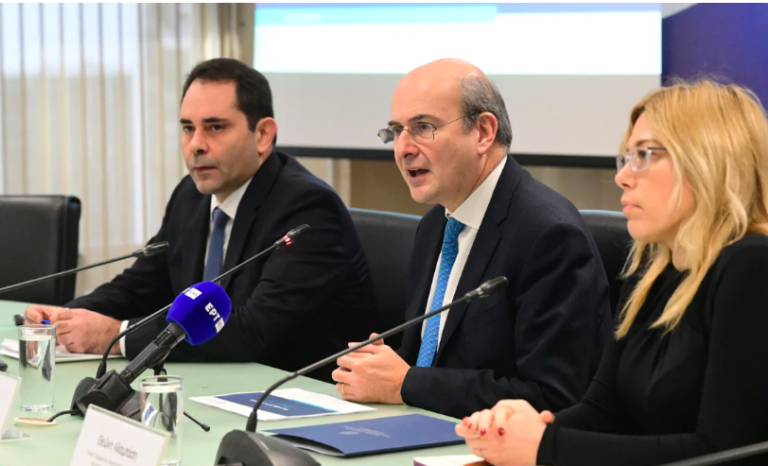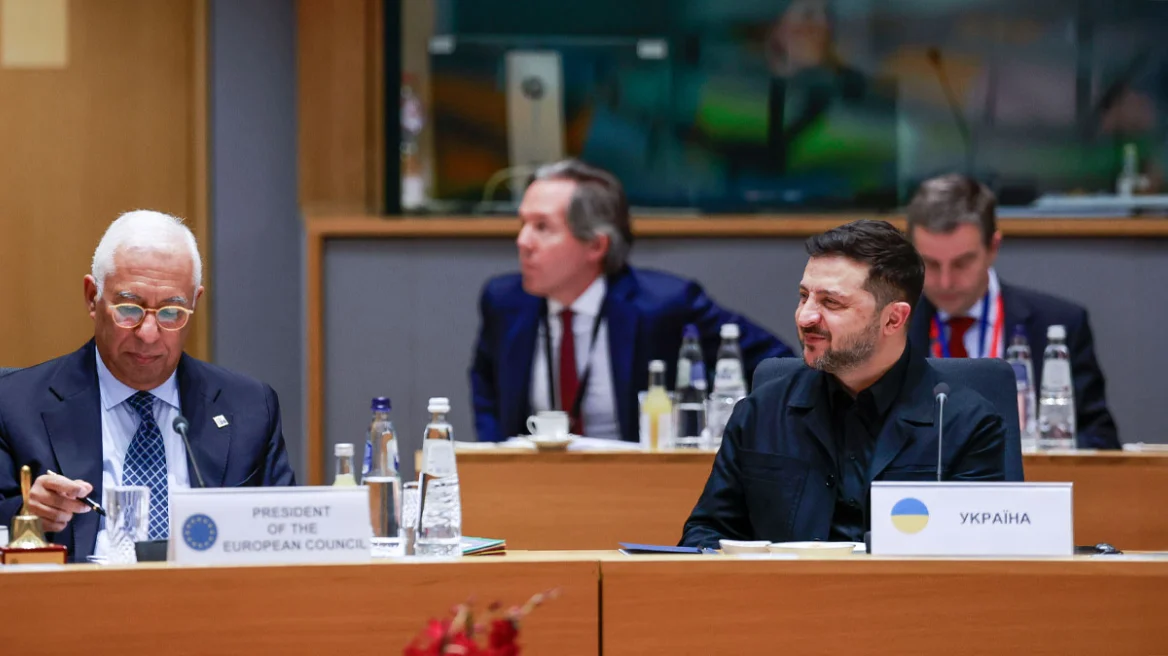The Minister of Finance, Kostis Hatzidakis, along with Deputy Minister Thanos Petralias and Secretary-General Theoni Alampasi, is currently detailing the measures announced on Sunday by Prime Minister Kyriakos Mitsotakis regarding banking fees and charges for transfers, withdrawals, and prepaid cards.
Starting his presentation, Mr. Hatzidakis recalled that, so far, the government has:
- Reduced transaction fees for payments up to €10 via POS.
- Accelerated the out-of-court debt settlement mechanism with a focus on vulnerable groups, leading to a 73% increase in applications.
- Supported the creation of the fifth banking pillar through legislative initiatives.
- Allowed non-banking institutions to provide mortgage loans as of December 2023.
“We have moved into a new phase by privatizing banks, which generated €3.5 billion in revenue for the country. This step was completed to send a message of reliability,” said Mr. Hatzidakis. He also highlighted the reduction of non-performing loans (NPLs) to 6.4%, with plans under Hercules 3 to lower them further to the EU average of around 3%.
“The country, unfortunately, held a global record for NPLs due to the crisis of the past decade. We are not using a ‘magic eraser’ but implementing policies that rapidly de-escalate red debt,” he added, noting the banks’ donation of €50 million after storm Daniel and their support of the fifth banking pillar with €70 million. Initiatives such as freezing interest rates on mortgages were also mentioned.
Acknowledging existing flaws in the banking system that frustrate citizens, Mr. Hatzidakis stated, “After my initiatives urging banks to reduce fees, which they only partially did, we took the steps announced by the Prime Minister on Sunday.”
The cost of these measures for 2025 amounts to €350 million:
- €100 million for the re-leasing entity.
- €100 million for the “Marietta Giannakou” program.
- €130 million for commission reductions.
- €20 million for other actions, such as ATMs.
For ENFIA, the cost for banks, if they keep properties unused, will range from €10-20 million.
In elaborating on the measures announced on Sunday by Prime Minister Kyriakos Mitsotakis, regarding the procurement of banksand the charges they make on transfers, withdrawals and prepaid cards, is currently being advanced by Finance Minister, Kostis Hatzidakis.
The 10 measures announced by the prime minister
1. zero charge for payment of bills and debts to the state, social security funds, local authorities, energy, water, telecommunications and insurance companies via digital networks (web-banking/mobile-banking) (from 0.6 euros, which currently costs 0.6 euros in most cases).
2. Drastic reduction of inter-bank transfer fees: Maximum charge of 0.5 euro for sending money (outgoing remittance) and 0.5 euro for receiving money (incoming remittance), for amounts up to 5,000 euro per remittance, for individuals and self-employed persons, between banks. It concerns both simple transfers and direct credit transfers (SEPA). This corresponds to a reduction in the cost of these fees of between 50% and 80% depending on the bank and the type of transfer (from 1 to 2.5 euros, which is what it currently costs).
3. Zero charge for cash withdrawals from an ATM of a bank other than the one where the account is held in remote and island areas where there is only one bank’s ATM. In addition, nationwide, zero charge for account or card balance enquiries at ATMs of other banks (from approximately EUR 0.2 currently in force).
4. Reduced card transaction costs by 50% for small retail purchases up to 20 euros (from 10 euros recently introduced).
5. Zero charge for loading prepaid cards for a loading amount of up to 100 euros (from approximately 1 euro currently in force
6. Expansion of the use of IRIS with the establishment of discrete limits to allow for direct and free transfers of money between individuals up to EUR 500 per day, in addition to EUR 500 per day for direct payments to freelancers/individual businesses.
7. Doubling of the ENFIA for vacant residential properties owned by banks and servicers to be channelled into the market.
8. Enhancing competition in the financial system and access to credit by removing restrictions on financing by Credit Providers.
9. Transparency and the information framework for citizens is strengthened, who will now be able to compare interest rates on deposits and credit, as well as charges associated with payment accounts. This information will be available on the website of the CBE.
10. Voluntary Contribution of Systemic Banks: The systemic banks will provide an amount of 100 million, augmenting the available resources of the Marietta Giannakou Programme for the reconstruction of even more schools. The aim is for the economy to grow dynamically and for this growth to be shared equitably among all citizens.
The aim is for the economy to grow dynamically and for this growth to be shared equitably among all citizens.
Mariannina’s contribution will be used to increase the resources of the Greek economy.
Ask me anything
Explore related questions





